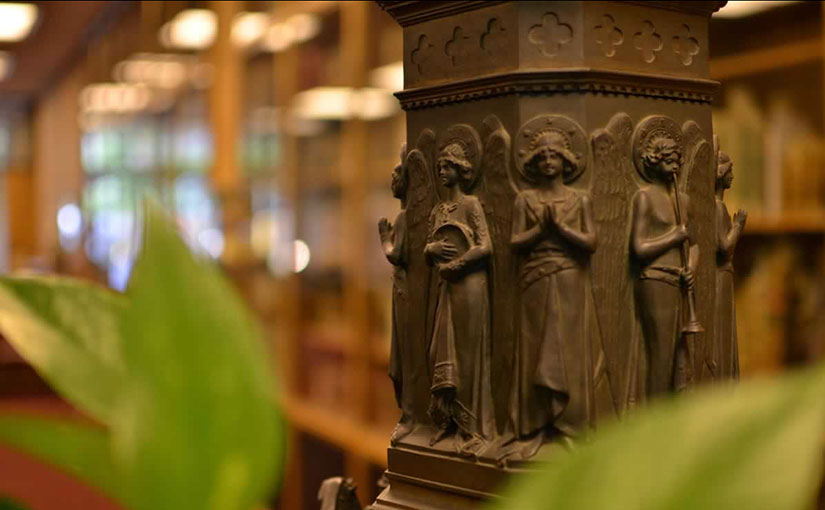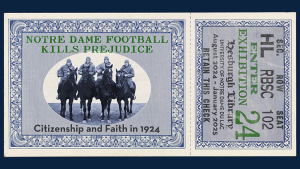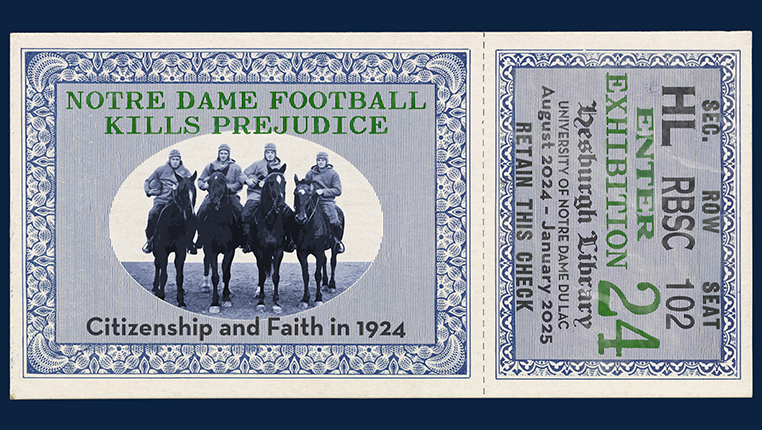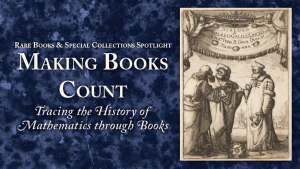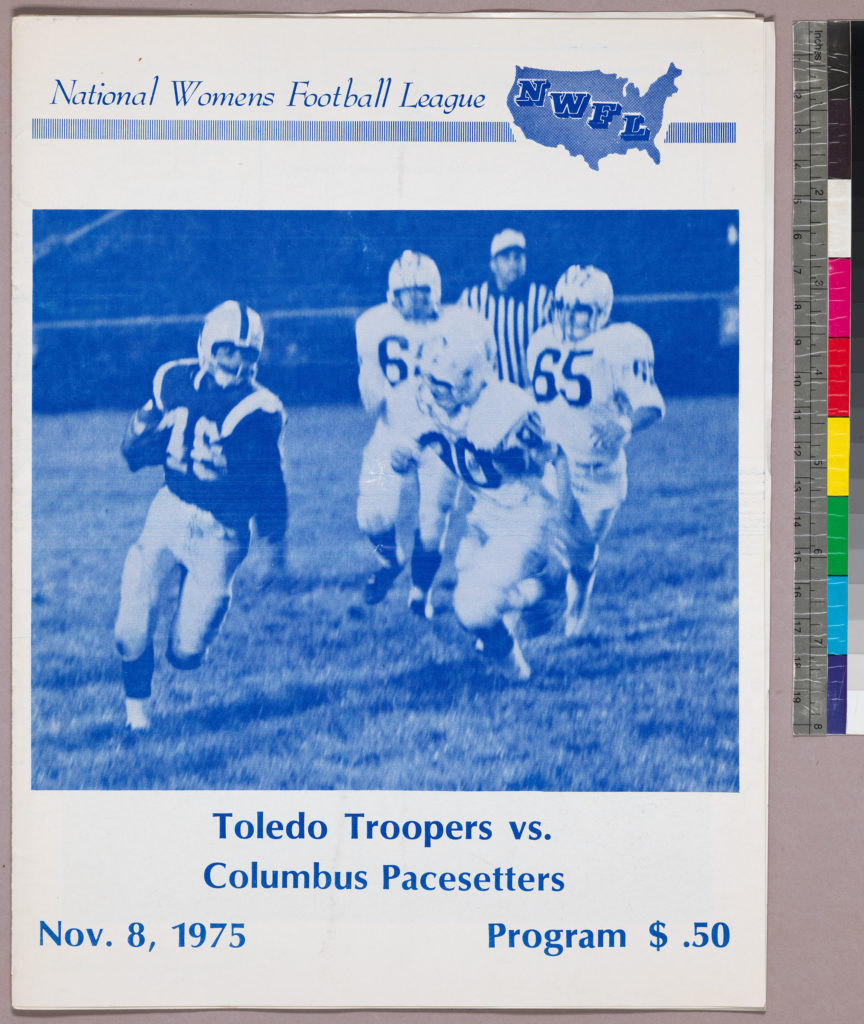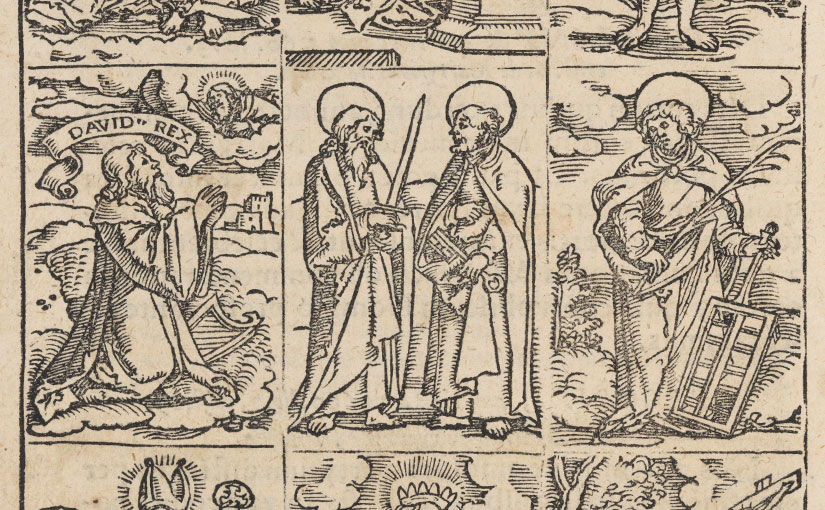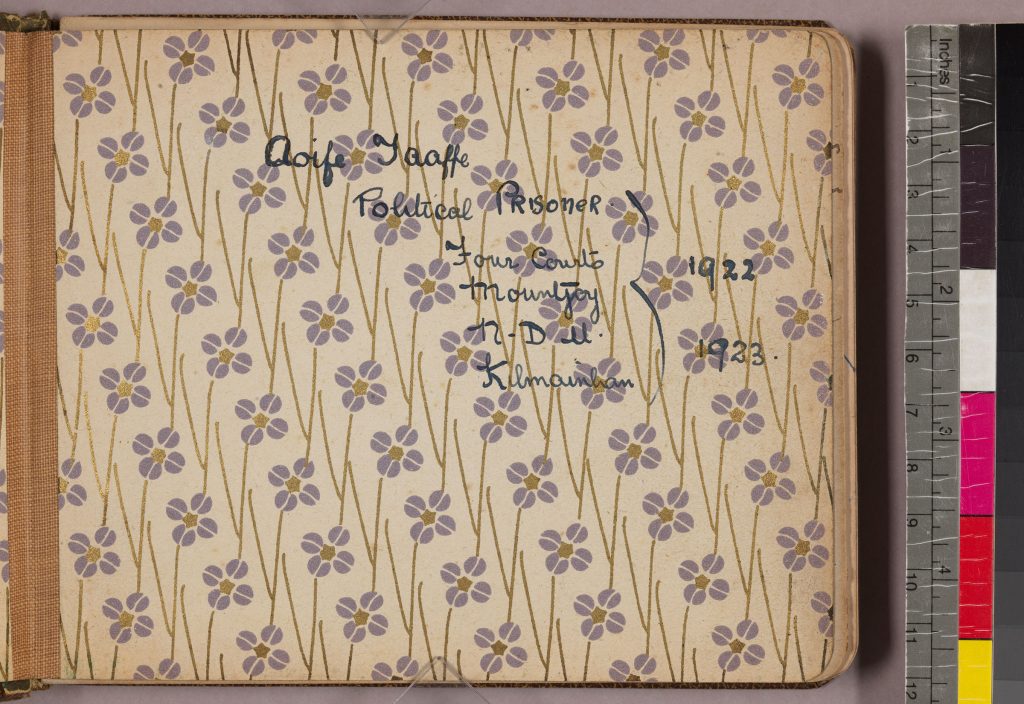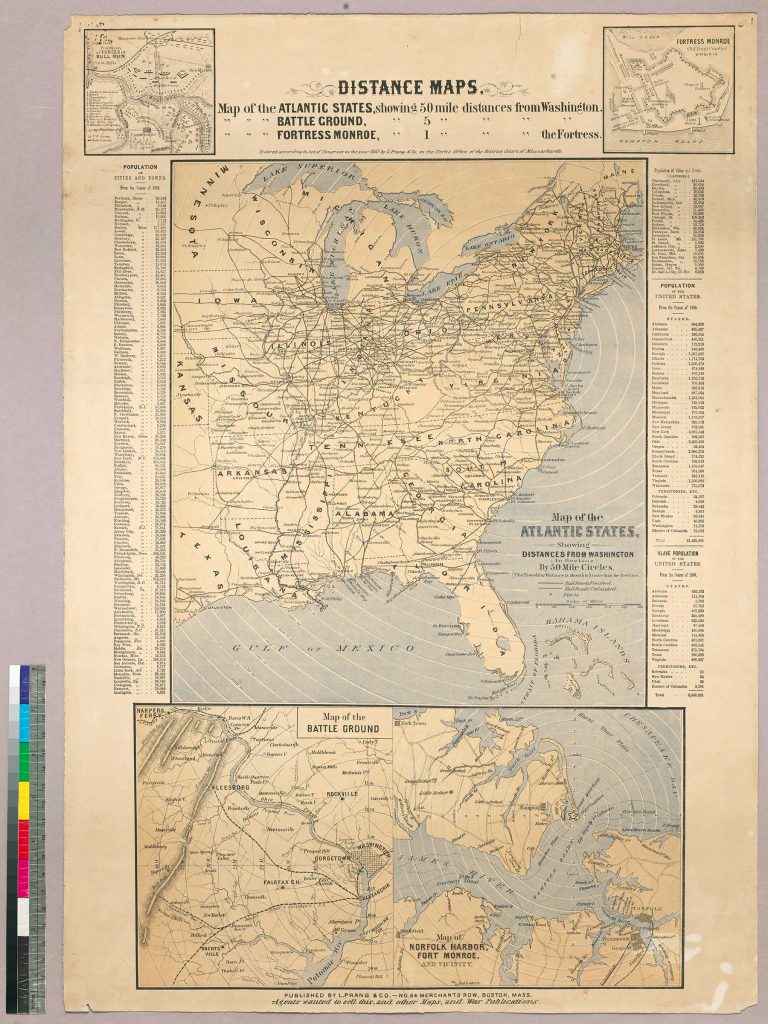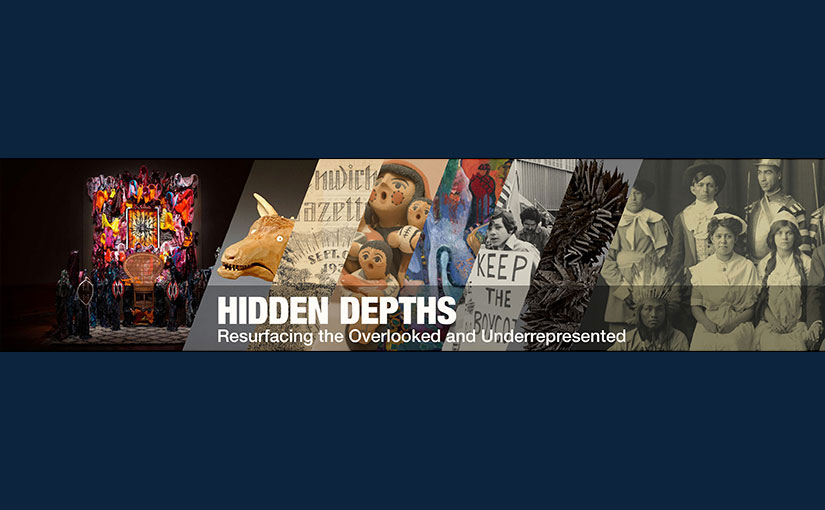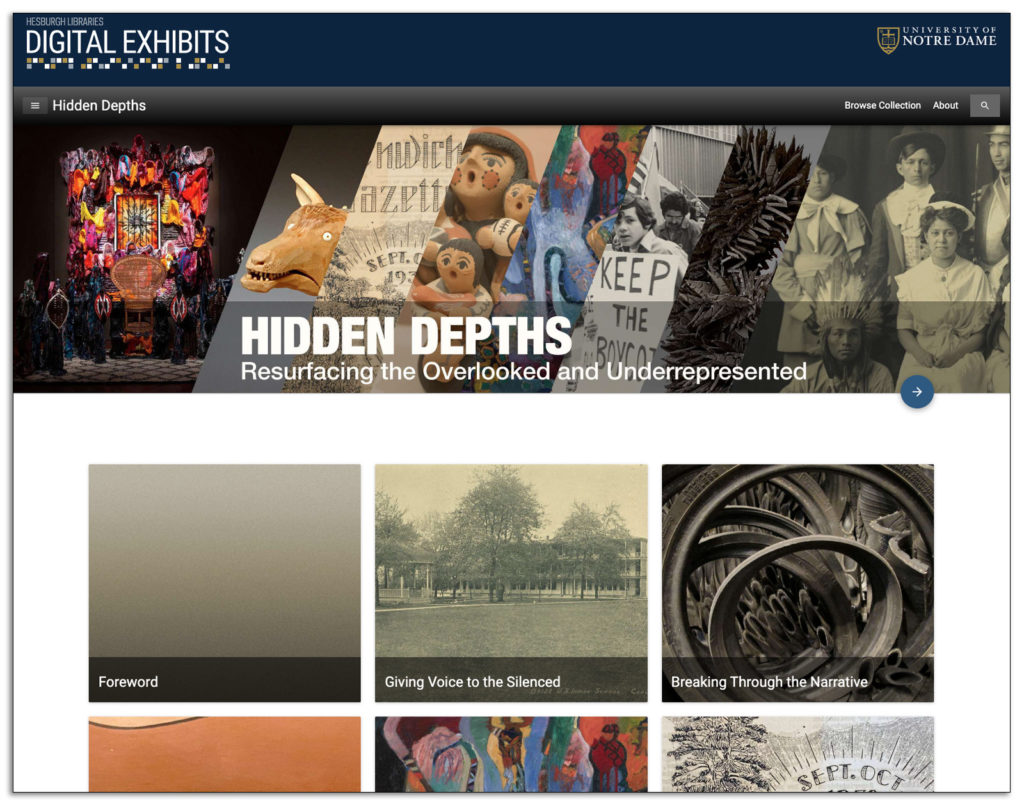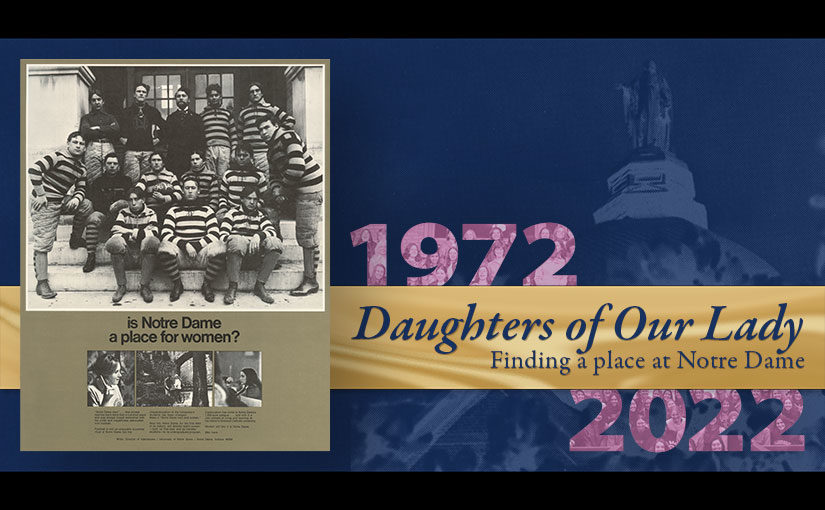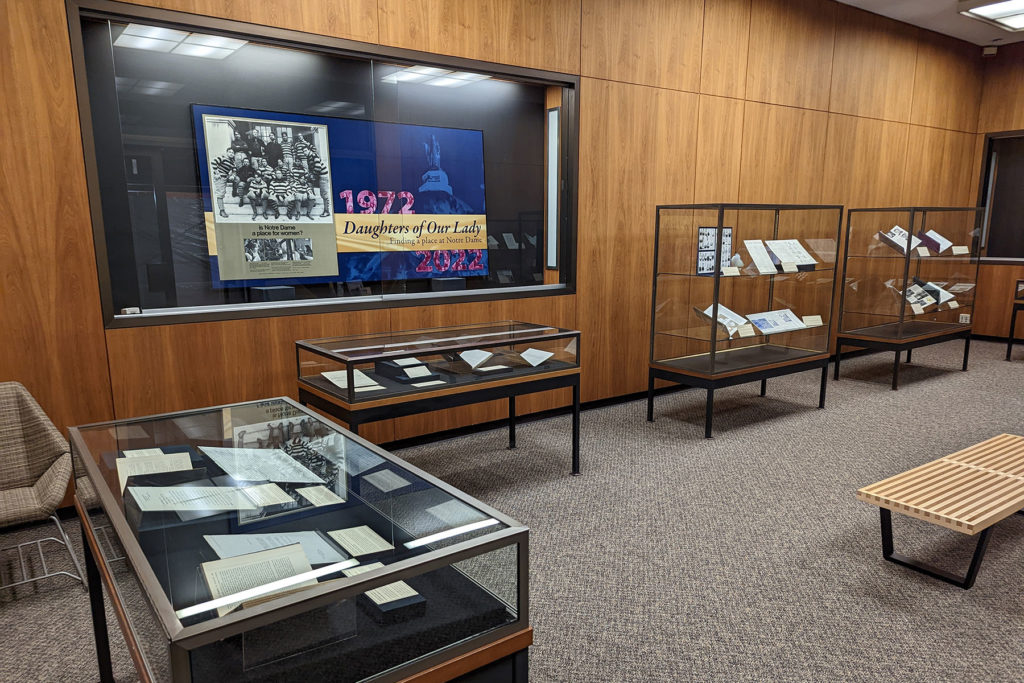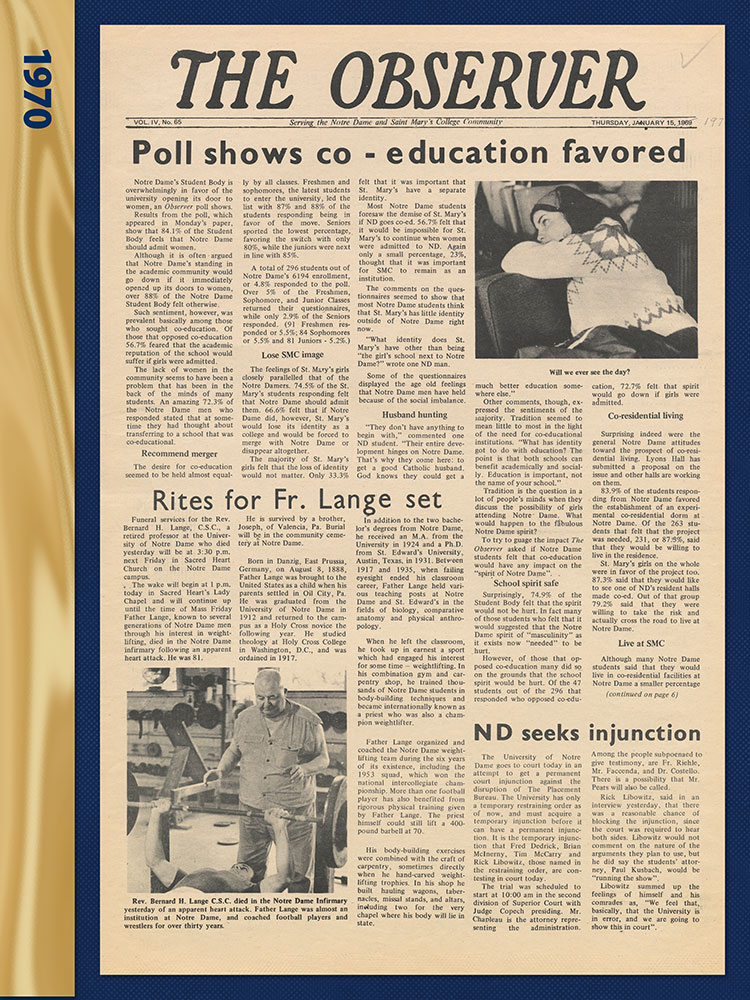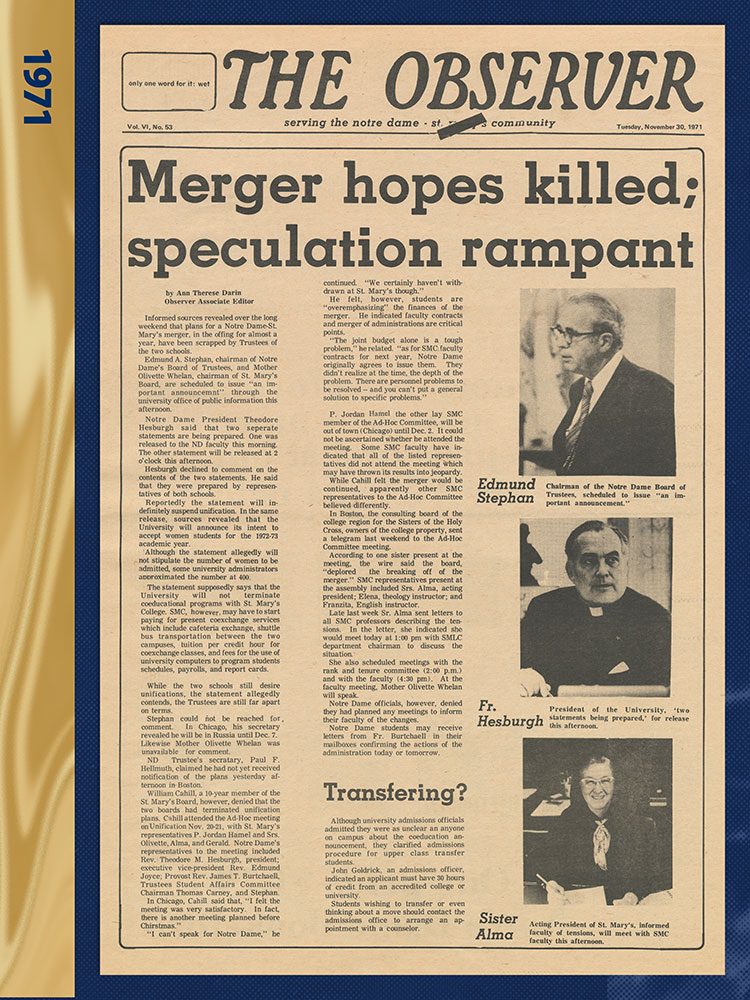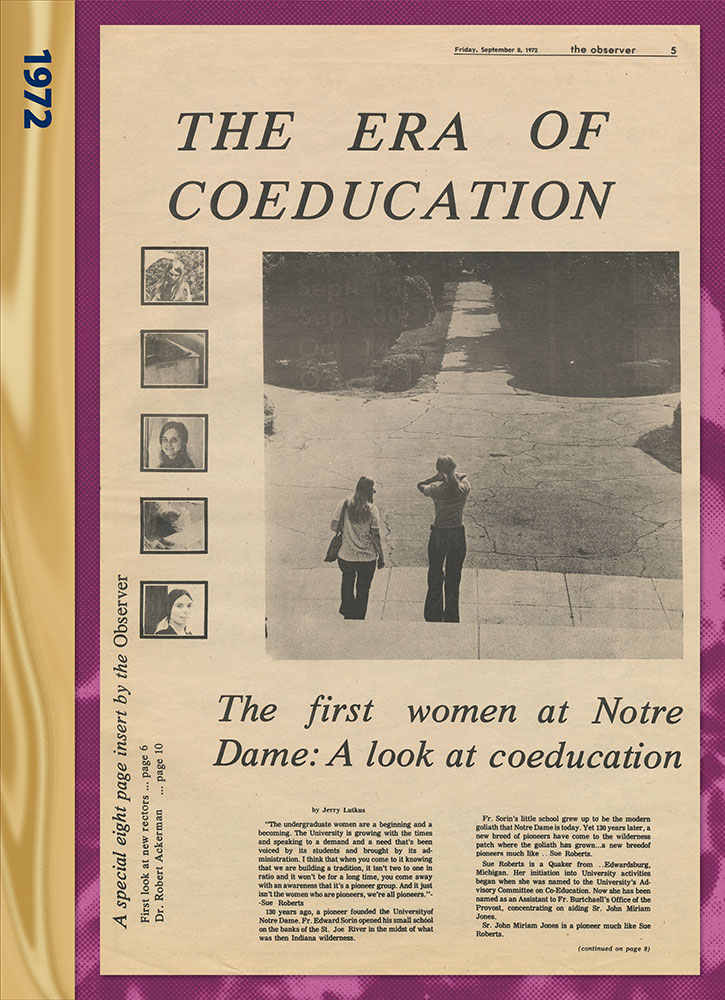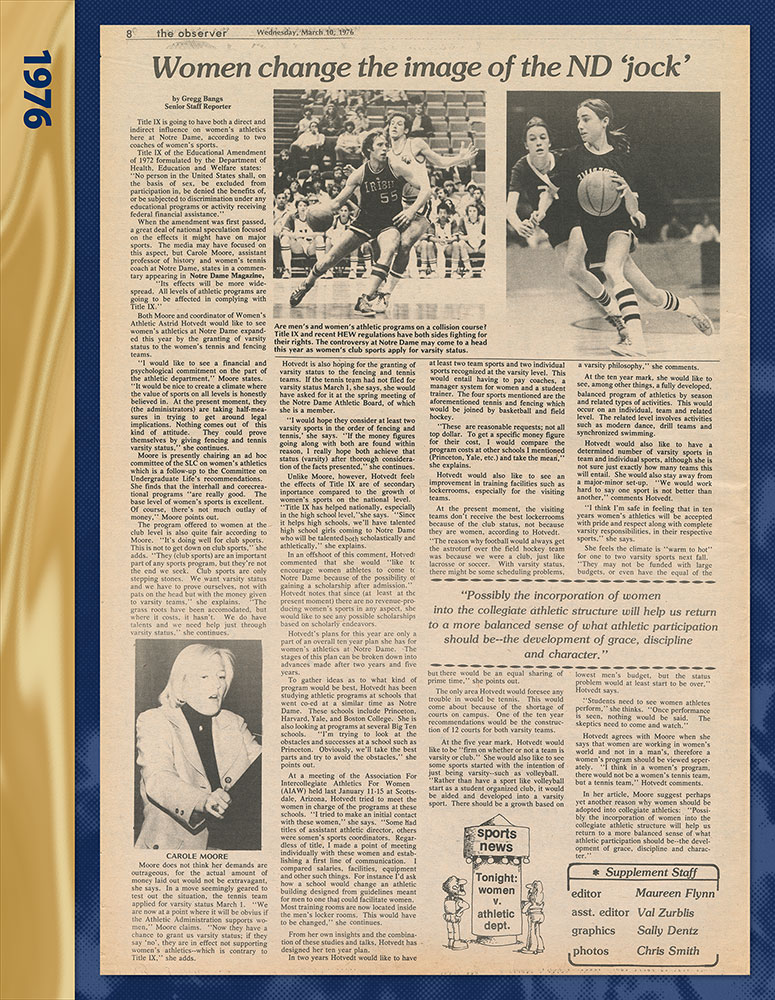This spotlight exhibit and blog post were created in conjunction with Somos ND, a campus-wide initiative to honor the history and legacy of Latino and Hispanic contributions to the University.
Campbell Soup Boycott
By Emiliano Aguilar, PhD, Assistant Professor History, University Of Notre Dame
In 1979, a small cadre of University of Notre Dame and Saint Mary’s College students organized to push a boycott of Campbell Soup and Libby Manufacturing goods on their campuses. The group formed the Notre Dame–Saint Mary’s College Farm Worker Project in February to support the Farm Labor Organizing Committee (FLOC), a Midwest-based labor union and advocacy group that supported the rights of migrant farm workers. FLOC had initiated a nation-wide boycott campaign earlier that year to convince these major food manufacturers to pressure their suppliers to negotiate with FLOC to improve migrant farm workers’ salaries and labor conditions.
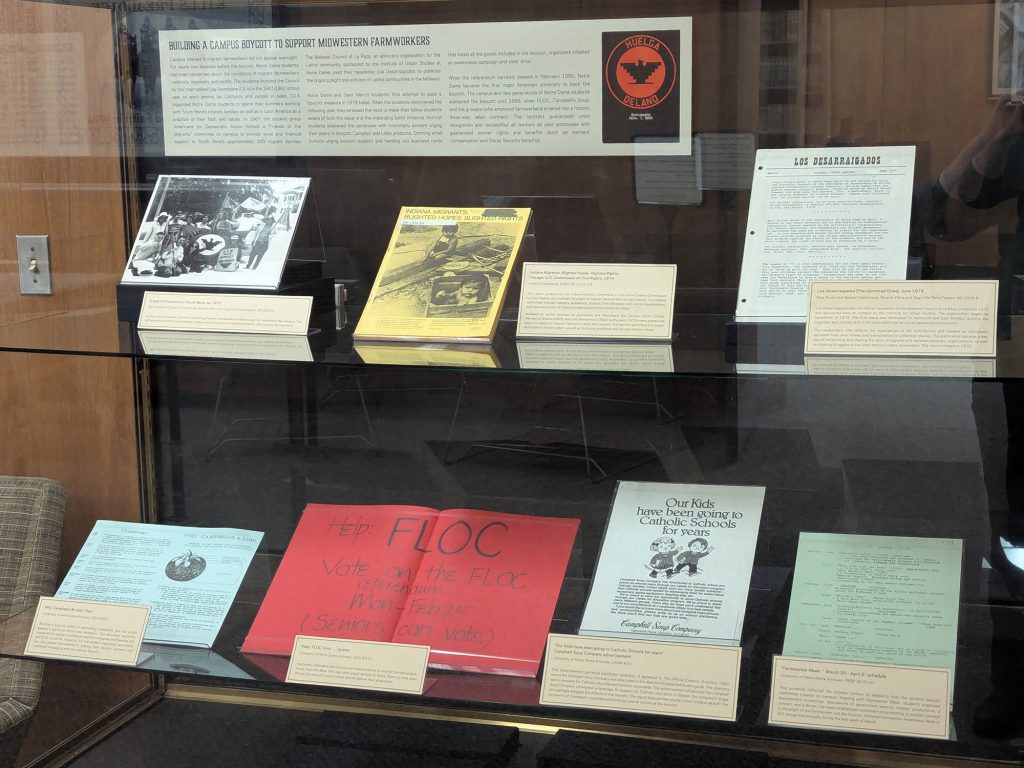
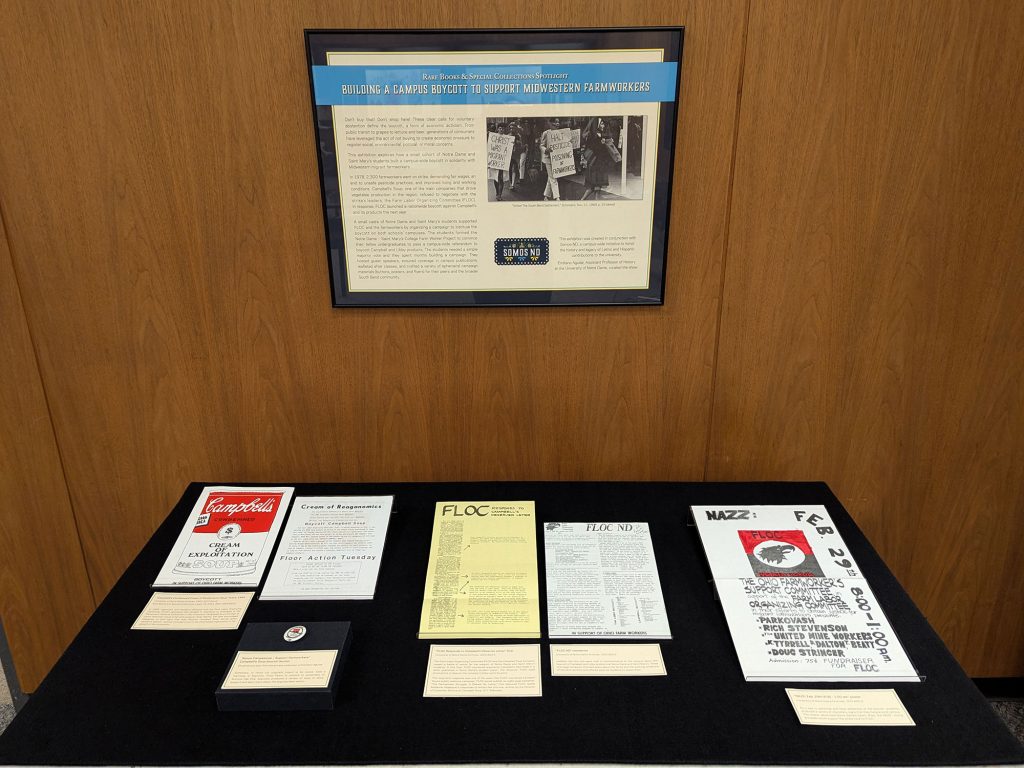
The immediate goal of the Notre Dame–Saint Mary’s College Farm Worker Project was to convince the undergraduate student bodies to pass a campus-wide referendum to join the boycott of both Campbell and Libby on their campuses. To do so, the organizers needed to convince most students to not only vote in favor of the boycott but to also participate in the election at all. While the vote favored the boycott, not enough students chose to vote—bringing the ballot initiative short of the university’s guidelines.
However, the organizers were not dismayed. When the students reconvened for a new semester, they stressed the need to make their classmates aware of both the issue and the impending ballot initiative. Members of the committee plastered the campus with impromptu posters urging their peers to boycott Campbell and Libby products. Donning small buttons urging a boycott of the companies and handing out business cards that listed all the goods included in the boycott, organizers initiated an awareness campaign and voter drive.
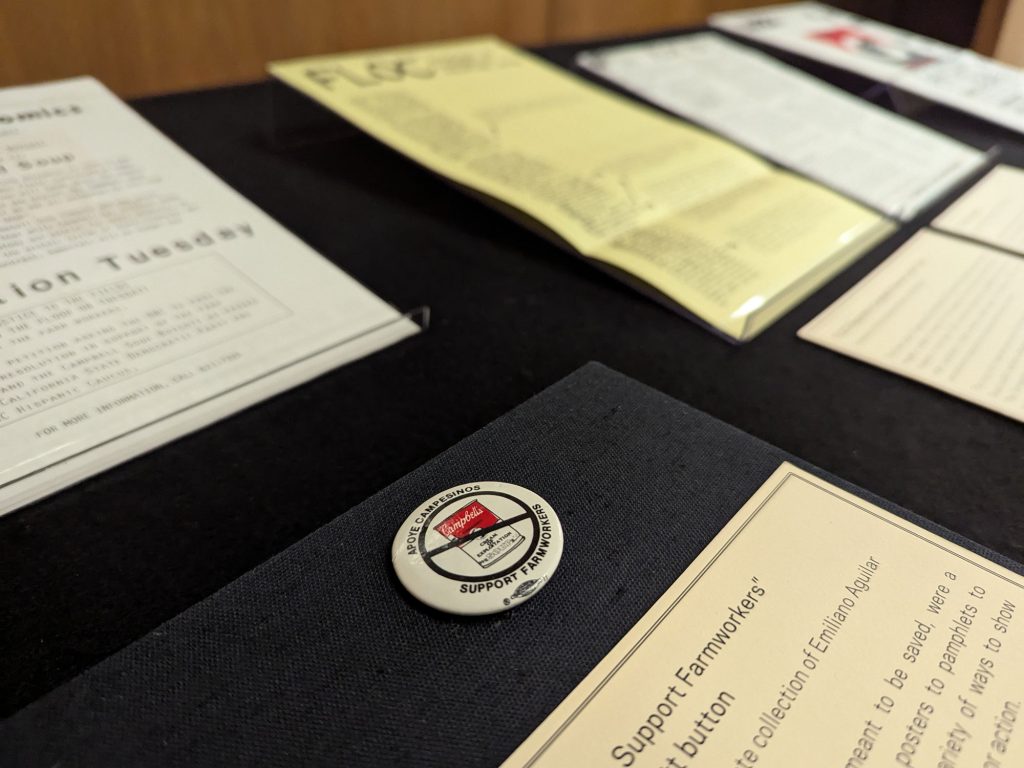
The calls for a boycott placed the university at the center of a moral battle between the company and Midwestern farmworkers. With a successful vote, Notre Dame would become the first major university to boycott Campbell and Libby goods in solidarity with FLOC. This potential shift would lead the company to engage in an extensive public relations campaign, including publishing editorials and letters in the campus newspaper, The Observer.
A chief piece of ephemera passed around by campus protesters was “The Farmworker Struggle: A Debate By Letter.” This eight-page pamphlet featured FLOC leader Baldemar Velasquez’s response to letters written by the Director of Customer Service at Campbell Soup, D.Y. Robinson. Within his letter, Robinson stressed that the company did not directly employ farmworkers and was not responsible for the demands leveled by FLOC. Robinson asserted Campbell’s policy that the company “should not and will not inject itself into the labor negotiations between our suppliers and organizations representing the employees of their suppliers.”
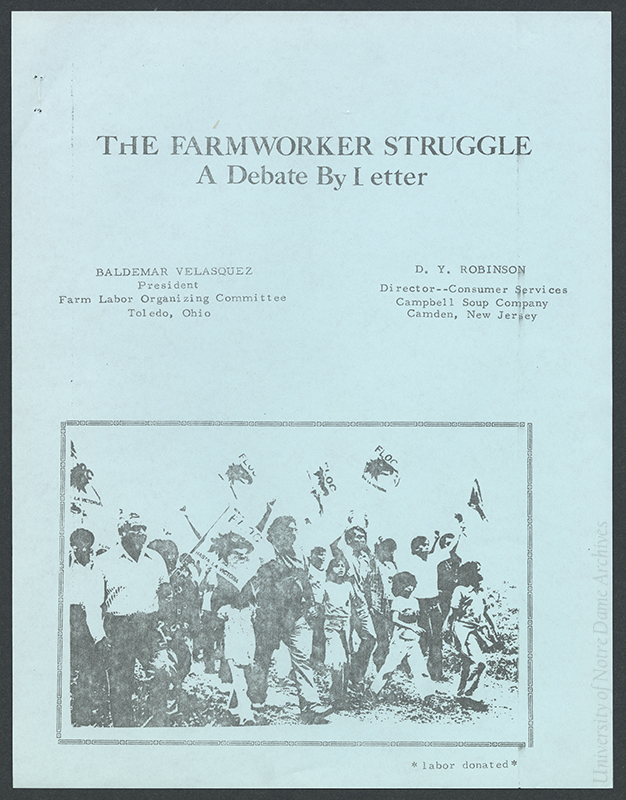
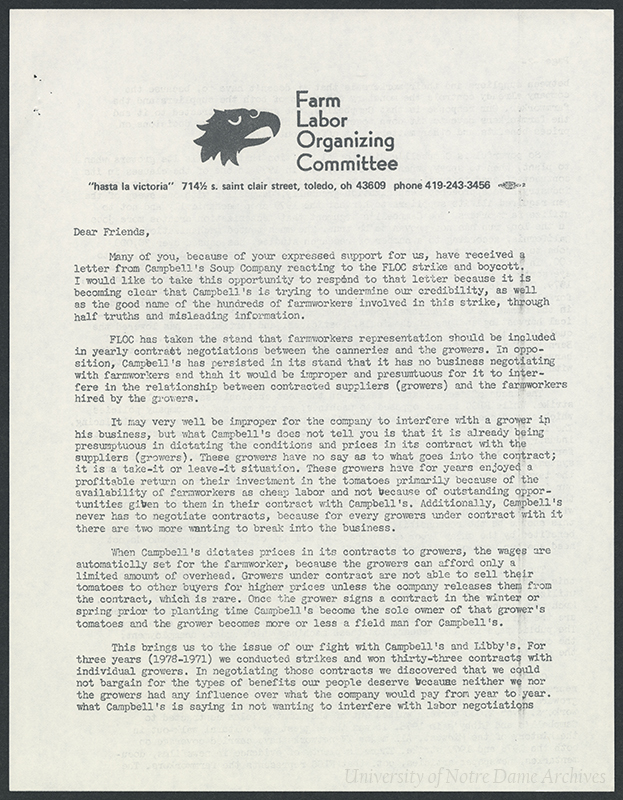
While Robinson argued that it would be “impractical” for the company to get involved, Velasquez’s response noted that the company was directly responsible for creating the conditions the migrants labored in – whether it was the field or a canning facility. Velasquez retorted that when the company dictated prices, that “the wages were automatically set for the farmworker, because the growers can afford only a limited amount of overheard.”
As a tool to educate and mobilize, the pamphlet offered not only multiple perspectives in direct conversation with each other but a partial list of supporters and a reprinted card, listing the goods included in the boycott. This pamphlet became one of many entry-ways for campus organizers to educate their peers and the broader community.
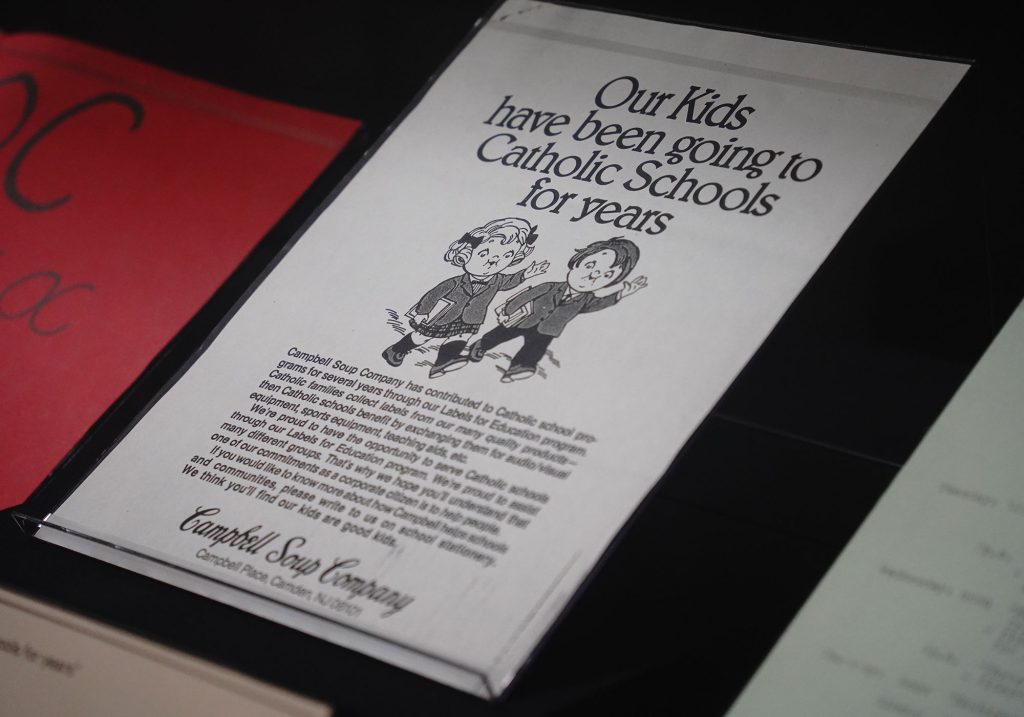
Campbell Soup also crafted materials to dissuade the boycott. A contemporary advertisement, for example, invoked the company’s popular “Labels for Education” school fundraising promotional program—as well as its support for Catholic education across the United States—to leverage Campbell’s Catholic identity against FLOC and the increasing support the farmworkers found within the Church. Featuring two young children, the ad hoped to emphasize that the pictured students were both the recipients of the company’s corporate philanthropy and victims of the boycott.
On Monday, February 25, 1980, the Notre Dame–Saint Mary’s referendum passed by a close margin, with exactly half of the campus voting. With 2,012 students in support and 1,321 opposed, Notre Dame began a boycott of Campbell and Libby. As one student organizer proclaimed, “We are not stopping. We are moving into South Bend and across the nation through the Catholic Church and the universities” (“FLOC Referendum Takes Voter Majority,” The Observer Feb. 26, 1980, pp 1, 6). Despite students graduating, the campus maintained the boycott for six years.
The Farm Labor Organizing Committee and its boycott against Campbell Soup, a quintessentially American company, even led to a line in Jesse Jackson’s famous speech to the Democratic National Convention in 1984, “The Rainbow Coalition.” FLOC organizers and activists were on hand with fliers that invoked the company’s iconic can image, relabeling the soup as “Cream of Exploitation.” The reverse side implored delegates to partake in a floor action during Jackson’s speech, holding signs in support for the nearly 2,000 farmworkers on strike in Campbell’s tomato fields.
On February 19, 1986, after seven years of protest, FLOC, the Campbell Soup Company, and their growers, entered into a historic three-way labor contract in Ohio and Michigan—recognizing the union, establishing farmworkers as paid employees, and guaranteeing minimum earnings and benefits.


